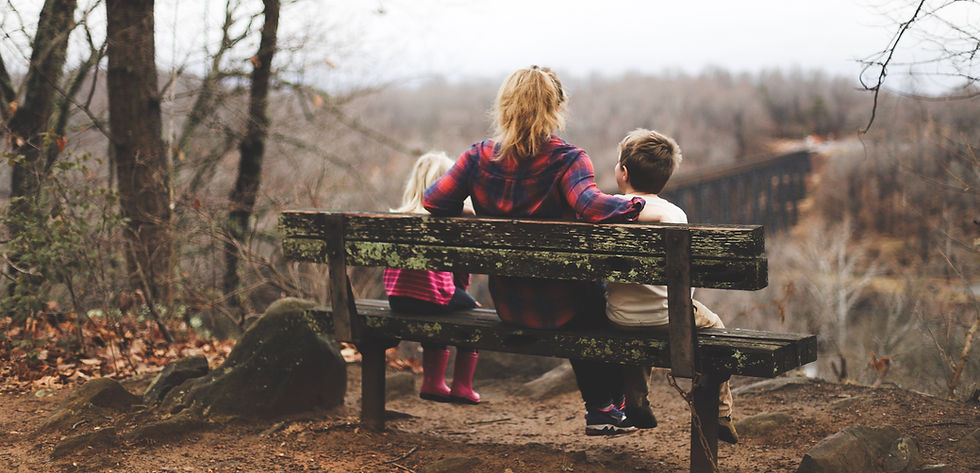The Heartfelt Apology: A Parent's Guide
- Panorama Psychology Admin
- Dec 5, 2023
- 3 min read
Updated: May 9, 2024
Understanding the Significance
Why are apologies important? In our work with children and families, we believe in empowering parents to accept their imperfections. Not only does this ease the pressure that many parents feel to be perfect, but it also imparts important lessons to children about mistakes and relationships. The ultimate goal around this issue should be to equip our children with good relationship skills that will help them to thrive in all areas of life.

Have you ever wished that your child had an easier time taking accountability or admitting a mistake? A good place to start working on that is with your own apologies. The process of modeling, in which children learn by observing their parents, offers a ripe opportunity to teach important lessons about accountability and mistakes. When you apologize to your child (even about something small), it teaches them that is is okay to be wrong, and it fosters a family culture of honestly that you will be grateful for in the future.
Apologies also are signs of strong and healthy relationships. If you worry that giving an apology is a sign of weakness, we ask that you reconsider your ideas about strength. In fact, owning up to a mistake and committing to do better is one of the bravest things we can do - although it can be accompanied by feelings of vulnerability that are often uncomfortable. But when we apologize to our children (or in front of our children), we are actually giving an important lesson about relationships and strength. Specifically, we teach children that it is okay to be wrong, and that giving an apology can help others feel seen and understood, which actually brings people closer together and creates feelings of mutual trust and respect.
Why is it so hard to apologize?
As a parent, you can think back to your own childhood to figure out what lessons you learned about relationships. Many parents share that apologies were just not a pat of their childhoods. Instead, when their parents messed up, that was swept under the rug and the expectation was to move on. We now know that this type of relationship dynamic leads to a lot of confusion and ultimately has consequences including anxiety, depression, and relationship insecurity. So, parents today have an amazing opportunity to change the generational script and build a new family culture of honesty, trust, and openness. Whereas our parents believed that kids don't need to be apologized to, we can parent in a way that respects our children's emotional experiences and teaches them important lessons that they can bring in to their own lives and relationships.
Getting over the hump of apologizing can be difficult, but we promise it gets easier and more natural the more you practice. In fact, over time, you may notice that apologizing actually feels good because it clears the air and clarifies any outstanding misunderstandings or potential hurts that have happened. We often see that when parents start apologizing, children have an easier time owning up to their mistakes, which leads to better self-regulation, impulse control, and confidence.
The Anatomy of an Apology
Okay, here is a blueprint for giving an effective apology to your child. Remember, every child and family is different, nad you know best what works in your family. But these are some general guidelines that may be helpful especially if apologizing doesn't come naturally to you.
1. Get on their level
Literally! Kneel down, make eye contact, and ensure you have their full attention. This shows that you're taking them seriously.
2. Own it
Start by acknowledging your mistake. Say the words "I'm sorry." Kids are perceptive and appreciate honesty. Admitting when you're wrong sets a great example for them. You don't have to give reasons for your mistake, and make sure you take Benjamin Franklin's warning seriously: “Never ruin an apology with an excuse.”
“Hey buddy, I'm sorry. I messed up. I shouldn’t have yelled at you.”
3. Express empathy
Let them know you understand how your actions may have made them feel. Showing empathy helps them feel heard and validated.
“That must have been scary and confusing for you.”
4. Make it right
Actions speak louder than words. Commit to doing better in the future. Share with them how you plan to avoid making the same mistake in the future. Emphasize that everyone is constantly learning and growing.
“I’m going to keep working on staying calm because I know yelling doesn’t help.”
5. Encourage Open Communication
Reinforce that it's okay for them to express their feelings and let you know if something is bothering them. Building a culture of open communication is key.
“I hope you will let me know if you ever feel scared or confused in the future.”
Remember, we are all human and we all make mistakes. Repair is one of the most important parts of a safe and healthy relationship.





Comments